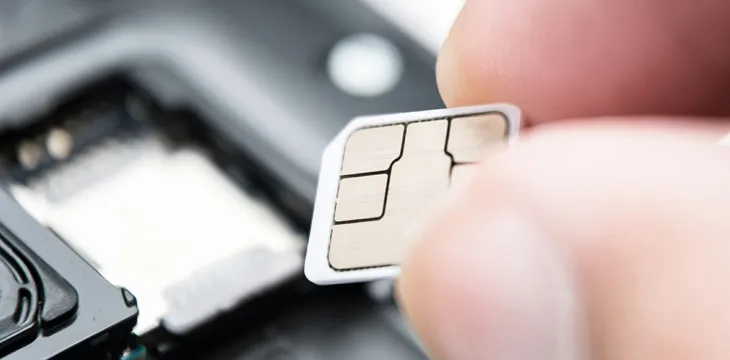|
Getting your Trinity Audio player ready...
|
A U.S court in the Northern District of California has indicted two men accused of SIM swapping to steal cryptocurrencies. The court filing alleges that the two used fraud and extortion and targeted crypto investors and executives. SIM swapping allows an identity thief to assume the identity of his victim and can thus access his accounts.
The two men who were indicted are 21-year-old Ahmad Hared and 23-year-old Matthew Ditman, from Arizona and Las Vegas respectively. According to the indictment, the two used deception and social engineering techniques to “induce representatives of cellphone service providers to provide information about the SIM cards.” Once they gained control of the SIM cards, they would then access the emails and other electronic storages.
Armed with crucial information such as passwords and private keys, they would then steal their victims’ crypto assets. The indictment also accuses the two of extortion. It alleges that once they took control of the SIM card, they would extort the owners in order to return the SIM cards.
Hared made his initial appearance in court on January 31 after being arrested in his home town of Tucson. The court released him on a $100,000 bond, but he is set to appear back in court on February 13. His accomplice also appeared before a Nevada court on January 31 and was released on bond as well.
Despite the indictment, the court hasn’t convicted them and they are thus innocent till proven guilty. However, if convicted of all the five charges, they stand imprisonment for more than 17 years. Conspiracy to commit fraud carries a five-year sentence, as does conspiracy to commit access device fraud. Aggravated identity theft, and communication with the intent to extort both, carry a two-year prison sentence.
Crypto still the criminals’ favorite
While SIM swappers can access bank accounts of their victims, they still favor stealing cryptocurrencies. According to a recent report by CipherTrace, this is because cryptos are easier to access and cash out. Many online crypto exchanges carry out minimal anti-money laundering procedures. This leaves them prone to being used by criminals to launder stolen tokens. Peer-to-peer platforms such as LocalBitcoins also facilitate these criminals, as they don’t monitor the traders.
One of the biggest incidents of SIM swapping has been in California where the criminals stole over $23 million. The victim, Michael Terpin, lost his crypto assets after his SIM was swapped and the criminals took control of his wallet. He then sued AT&T, his service provider for negligence. Terpin’s lawsuit demanded his $24 million as well as $200 million in damages. He stated in his 69-page complaint:
“What AT&T did was like a hotel giving a thief with a fake ID a room key and a key to the room safe to steal jewelry in the safe from the rightful owner.”

 08-31-2025
08-31-2025 





